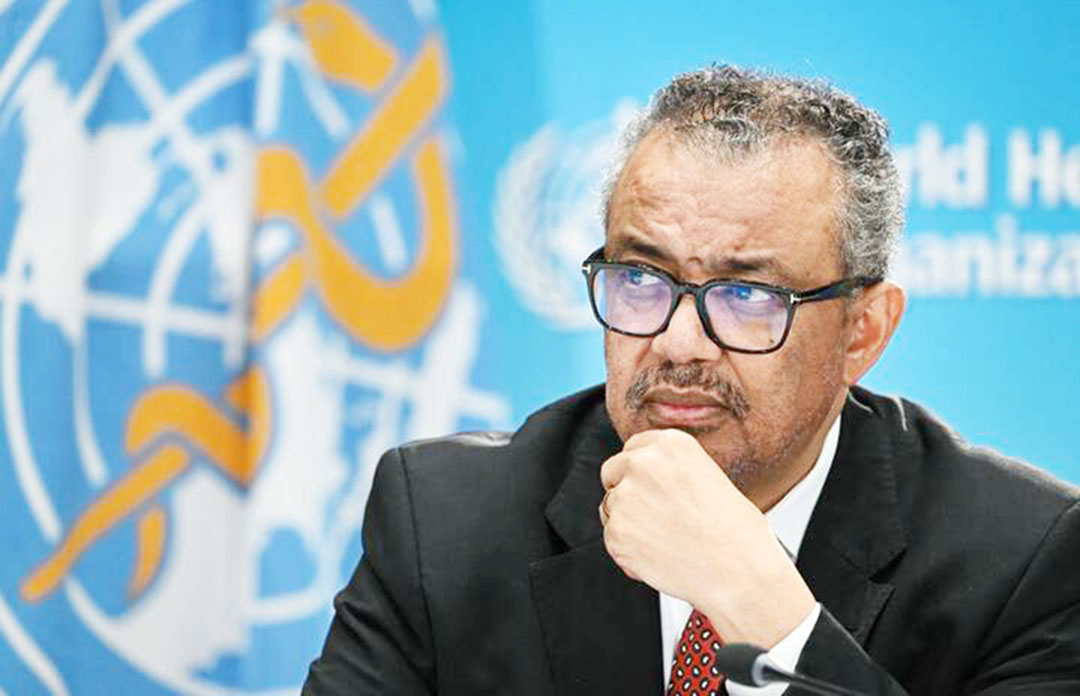It is no longer history that the global community commemorates the Tuberculosis Day every year. This year’s event, themed: “Yes! We can End TB: Commit, Invest, Deliver”, amplifies the needed attitude towards ending the scourge of the world’s deadliest infectious disease – tuberculosis. This calls for a serious and keen response by leaders everywhere.
Observed annually since 1982, World TB Day calls for priority and accountability across the world to tackle tuberculosis, which continues to devastate millions globally, inflicting severe health, social, and economic consequences.
It is an air-borne disease caused by a virulent bacterium known as Mycobacterium tuberculosis. Despite being preventable and curable, TB has been identified among the top 10 causes of death worldwide.
It is estimated by sources that every year, “10 million people develop active TB disease following the re-activation of the dormant organism or from community transmission of active forms of the organism. Of these, approximately 1.1 million are children and 860,000 people living with HIV.”
“According to provisional data, over 361,000 TB cases were reported in Nigeria in 2023, nine per cent of these in children. Overall, this marked a 26 per cent increase in the number of cases compared with 2022.”
Sadly, it is reported that 1.25 million people died from TB in 2023, including 161,000 people with HIV/AIDS. Symptoms of this disease include a bad cough that lasts from around three weeks and beyond, pain in the chest, and coughing up blood or sputum (phlegm) from deep inside the lungs.
Part of the symptoms include weakness or fatigue, weight loss, no appetite, chills, fever, and sweating at night.
Disturbingly, Nigeria has the highest tuberculosis burden in Africa. “The disease kills 268 people in the country every day,” says the World Health Organization, WHO. “Yet TB cases are under-reported, increasing the high risk of transmission. It is estimated that one missed case can transmit TB to 15 people in a year.
“According to provisional data, over 361,000 TB cases were reported in Nigeria in 2023, nine per cent of these in children. Overall, this marked a 26 per cent increase in the number of cases compared with 2022.”
As it is, Nigeria accounts for about 4.6 per cent of the global TB burden and an estimated 15 Nigerians die each hour due to TB, equivalent to about 347 deaths daily, 10,417 monthly and 125,000 in a year, according to data made available.
The WHO 2019 Global TB Report revealed a poor detection rate of 24 per cent in Nigeria with only 20 per cent of health facilities able to provide TB services.
It was estimated that 20 per cent of TB cases in Nigeria are estimated to be attributable to malnutrition, 12 per cent to HIV, 3.0 per cent to diabetes and 1.0 per cent to alcohol use disorder.
Though treated by antibiotics, thousands of citizens miss out on the care and treatment of TB annually due to a drug-resistant form of the disease. Gaps in the domestic funding of TB programmes have also been identified to stall measures to end the menace. Experts say there is a 69 per cent gap in the funding required for TB control in Nigeria.
Other challenges include poor knowledge about the disease, stigma, inadequate human resources for healthcare, and poor access to testing and treatment facilities.
“The gap in case detection is mostly among children, due to some health workers at the facility and community level not sufficiently skilled to detect childhood TB, as well as a lack of awareness among families and communities,” the WHO notes.
We demand that government at all levels commit to strengthening and reviving the health sector to meet the needs of infected persons across sectors.
Governments should intensify their investments in medical facilities and supplies and ensure that citizens in urban and rural settings can gain access.
Our national anti-Tuberculosis programme should intensify efforts alongside its partners, including WHO, towards implementing various innovative strategies, including TB awareness, testing, diagnosis, and treatment across the states of the country.
We need to do more on our own, given the intolerable level international donors are heading.
Tuberculosis like several other contagious diseases have a seeming end so long as stakeholders work in tandem with the basic rules for shielding abuse and contagious behaviours.
culled from AljaziraNigeria















Leave a comment